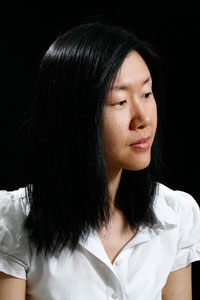Faith is an important factor in our decision to hold someone or something to our hearts, or turn our back on them and walk away. As far as a religion is concerned, however, faith must go hand in hand with wisdom, or else it might easily become blind faith.
A classic example is the case of the followers of Wat Phra Dhammakaya abbot Phra Dhammachayo, who is now wanted for financial fraud, with two arrest warrants hot on his tail, but still enjoys warm support.
The first arrest warrant was issued against him four months ago on charges of money laundering and receiving stolen property in connection with the Klongchan Credit Union Cooperative (KCUC) embezzlement scandal. The second one was issued three weeks ago after his temple's meditation facility in Loei province was found to be encroaching on a reserved forest.
This is the first time in nearly two decades that the abbot has been officially charged, and it's stirred up a series of heated debates between two groups of Buddhists on social media over recent months.
While many demanded that the monk, still in hiding at the temple, face the charges and fight in court, his disciples came out to defend him, citing that he was very ill and needed time for treatment. When the Department of Special Investigation (DSI) went to arrest him at the temple three months ago, thousands of his supporters showed up to block their way.
They vowed that they were confident of his innocence and accused the DSI of being involved with a conspiracy, with some groups of people out to get rid of him and destroy his temple.
They claimed that the abbot is full of virtue, as he always teaches his followers to do only good deeds. They also said that he has devoted his life to Buddhism and plays a very important role in promoting and spreading it around the world.
Their love and loyalty for the monk sounds impressive. But, considering his unimpressive background, their stories aren't substantial enough to convince everyone to stop giving him a suspicious look.
The 72-year-old abbot has been at the forefront of many scandals. He is accused of teaching incorrect Buddhist principles, violating the Buddhist monks' code of conduct, corruption and fraud. Likewise, his colossal temple is notorious for its greed-promoting donation concept.
While many Buddhists asked how the monk, and his associates, accepted illegal donations from the KCUC's former chairman, who later admitted siphoning money from it and is now behind bars, in the first place, his defenders insisted that he didn't know about the source of the donations and already returned them to the cooperative.
The "no knowledge, no intention, so no wrong" concept is not new for this temple, as it has repeatedly used it to justify acquiring massive wealth, especially through its hard-sell donation campaign which, in many cases, caused financial woes to the families of the donors. Also, it was used as an excuse to justify the abbot's alleged embezzlement which, coupled with his distortion of Buddha's words, compelled the late Supreme Patriarch Somdet Phra Nyanasamvara to instruct the Supreme Sangha Council to kick him out of the clergy 17 years ago. However, the disgraced abbot managed to escape punishment with the help of several top monks.
It's true that Wat Phra Dhammakaya has successfully attracted a large number of people to follow the Buddhist way of living and spread the religion far and wide. But its real goal in doing so is dubious.
It's not a secret that the temple intentionally distorts many parts of the Buddha's teachings and, worse, has invented a fictional theory suggesting that Phra Dhammachayo is superior to Buddha. Many Buddhist scholars believe the monk is trying to dominate traditional Buddhism with the "Dhammakaya sect".
It's not easy to encourage Dhammakaya followers to look at the other side of Phra Dhammachayo unless they open their eyes. Instead of focusing on the surface, they should ponder his morality and compare it with that of many other revered monks who never associate themselves with shady activities, in any way.
I believe that if they learn to raise questions about what the abbot and his temple have done and think about it in a more logical way, they would be able to at least tell themselves what a moral monk shouldn't do.
There are already many bad guys hidden under the saffron robe, and the last thing we want to see is them enjoying sacred status under the protection of blind faith.
Patcharawalai Sanyanusin is a writer of the Life section of the Bangkok Post.
